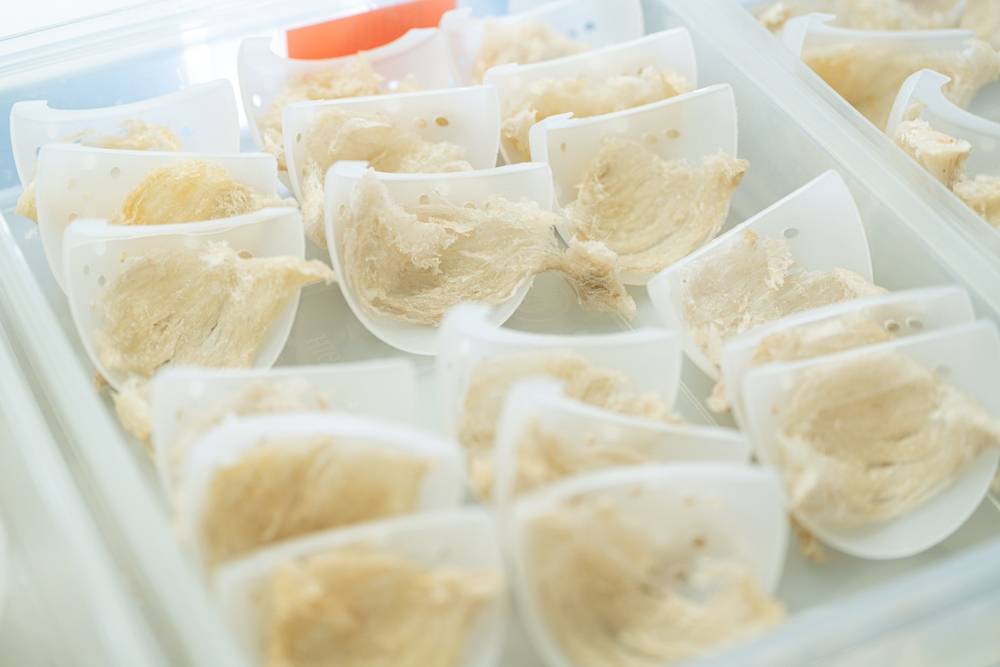Bird’s nest soup has long been touted for its purported health benefits. But does this traditional delicacy live up to the hype?
Bird’s nest soup, a renowned delicacy in traditional Chinese cuisine, uses nests made by swiftlets. These nests consist mainly of the bird’s saliva, which solidifies upon exposure to air. People have consumed bird’s nest soup for centuries, believing it offers numerous health benefits. But how much of this belief is myth, and how much is supported by scientific evidence?
Key Benefits and Nutritional Value
Bird’s nest soup contains an impressive array of macronutrients and micronutrients. It is particularly rich in carbohydrates, glycoproteins, and essential minerals such as calcium, sodium, magnesium, zinc, manganese, and iron. The protein content is notably high, ranging from 53.5% to 59.3%, indicating substantial nutritional value. This nutrient-dense profile is one reason why bird’s nest soup is so highly regarded.
Health Benefits
Anti-ageing and Skin Health
Bird’s nest soup has been shown to possess anti-ageing properties. It helps in scavenging free radicals, reducing UVB-induced skin damage, and promoting collagen synthesis. These properties are crucial in combating the signs of ageing, such as wrinkles and fine lines. Furthermore, bird’s nest soup enhances skin hydration and moisturisation by regulating the expression of filaggrin and other skin barrier proteins. This can lead to improved skin elasticity and a healthier complexion.
Immune System Enhancement
One of the significant health benefits of edible bird’s nest (EBN) is its ability to enhance the immune system. EBN promotes the proliferation and activation of B-cells, increasing the levels of immunoglobulins such as IgE, IgA, IgM, and IgG3, which are essential for a robust immune response. Additionally, EBN can protect against immunosuppression induced by cyclophosphamide, a common chemotherapeutic agent, highlighting its potential role in supporting the immune system during cancer treatment.
Antioxidative Effects
Bird’s nest soup is rich in antioxidants like lactoferrin and ovotransferrin, which help reduce oxidative stress and improve cellular health. Antioxidants are vital in protecting the body from damage caused by free radicals, which can lead to chronic diseases and ageing.
Cognitive Enhancement
Emerging research suggests that bird’s nest soup may have neuroprotective effects, potentially enhancing cognitive function and protecting against neurodegenerative diseases. This indicates that regular consumption of bird’s nest soup could contribute to better brain health and cognitive longevity.
Preparation and Consumption
Traditionally, prepared by double boiling at 90°C for two hours to retain its nutritional and functional properties. This method ensures that the soup maintains its high protein content and other beneficial compounds. Overcooking can destroy its protein content, thereby reducing its nutritional value.
Cultural and Historical Significance
Bird’s nest soup is not just valued for its health benefits but also holds cultural and historical significance. It has been consumed in China for over 400 years, often regarded as a symbol of wealth and status. Traditionally, bird’s nest soup was reserved for emperors and royalty due to its rarity and high cost. Today, it remains a luxurious delicacy, often featured in banquets and celebrations.
Potential Risks and Considerations
While it has many touted benefits, it is important to consider potential risks. For instance, allergic reactions can occur in some individuals, particularly those with allergies to bird proteins. Additionally, the authenticity and purity of bird’s nest products can vary, leading to concerns about contamination and adulteration. Therefore, consumers should seek high-quality, certified products from reputable sources to mitigate these risks.
Nevertheless, the evidence supporting the health benefits of bird’s nest soup is compelling. Its rich nutritional profile and various bioactive compounds contribute to its anti-ageing, immune-boosting, antioxidative, and cognitive-enhancing properties. Although further research is necessary to fully understand all its benefits, bird’s nest soup remains a valuable addition to a balanced diet. Ultimately, for those seeking natural ways to enhance their health, bird’s nest soup may indeed be more of a medical marvel than a mere myth.
References
- Chye, S. M., Tai, S. K., Koh, R., Ng, K., & Ommega Internationals. (2017). A mini review on medicinal effects of edible bird’s nest. Letters in Health and Biological Sciences, 2(1), 65-67.
- Thorburn, C. (2015). The edible nest swiftlet industry in Southeast Asia: Capitalism meets commensalism. Human Ecology, 43, 179-184.
- Hwang, E., Park, S., & Yang, J. (2020). Anti-aging, anti-inflammatory, and wound-healing activities of edible bird’s nest in human skin keratinocytes and fibroblasts. Pharmacognosy Magazine, 16, 336-342.
- Wong, R. (2013). Edible bird’s nest: Food or medicine? Chinese Journal of Integrative Medicine, 19, 643-649.
- Win, P., Su, M., Linn, W. Y., Myint, Y., & Win, M. (2020). Investigations into the physicochemical properties of raw edible bird’s nest and preparation of double boiled soup. International Journal of Research and Publications, 62(4), 4-4.
- Lương, K., & Nguyễn, L. (1999). Organic arsenic intoxication from bird’s nest soup. The American Journal of the Medical Sciences, 317(4), 269-271.
- Loh, S., Cheng, S., & Mohamed, W. M. Y. (2022). Edible bird’s nest as a potential cognitive enhancer. Frontiers in Neurology, 13.
- Ma, F. C., & Liu, D. (2012). Sketch of the edible bird’s nest and its important bioactivities. Food Research International, 48, 559-567.

